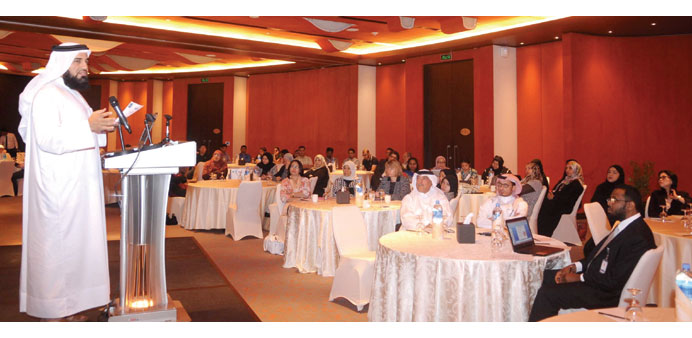|
|
A top official of The Supreme Council of Health (SCH) has advised all the travellers going from Qatar for pilgrimage or on holiday to take necessary precautions while embarking on their journey.
He also said that there had been no instances of Mers virus in Qatar since November 2013.
SCH held a workshop in this regard for the representatives of various health institutions in the country yesterday at the Torch Hotel. Around 120 medical professionals from public and private sectors and representatives from Qatar Airways, Qatar Foundation, Qatar Red Crescent, and Qatar Petroleum took part in the event.
Dr Mohamed al-Hajri, director, Health Protection and Disease Control Transitional, Public Health Department SCH, said that people travelling to Saudi Arabia for pilgrimage have to take additional precautions against Mers virus.
“Qatar currently has no cases of Mers. There were only very few cases of Mers in Qatar compared to Saudi Arabia and the UAE. Of late we are getting reports about Mers cases from countries outside the Middle East.”
He said: “Camels are suspected to be affected with Mers and it is advisable for anyone travelling to avoid contact with camels. Moreover people must undergo a medical inspection and take necessary vaccinations before travelling to most of the places.”
He added that SCH was monitoring all the developments about Mers internationally and updating the concerned organisations on a regular basis.
Emphasising the role of medical professionals, he said: “You are the ones who shall provide the best advice to the pilgrims and travellers.”
Dr Hamad al-Rumaihi, head of Surveillance and Outbreaks of Diseases, SCH, said that people going on pilgrimage to Saudi Arabia must undergo three compulsory vaccinations. “Three compulsory vaccinations to travel to Saudi Arabia are meningitis, yellow fever and polio. They must also avoid contact with animals, especially camels.”
In addition to the precautions, pilgrims must also undergo a medical check-up and evaluate the health condition of each person. “People with severe health problems and weakened immunity power must avoid travelling. Similarly, pregnant women are not advised to travel. People aged above 65 and children below the age of 12 are not advised to travel.”
Dr. Mohamed Nour, public health specialist, SCH, said: “People planning to travel must make necessary preparations 6-8 weeks in advance. They must take necessary vaccinations and other precautions. They should also take note of the travel warnings issued for each country.”

